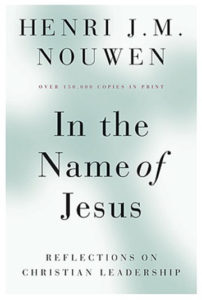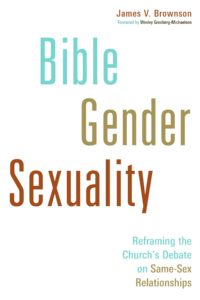This article is part of a progression
This post is the result of late night pillow thoughts. We’ve all had those. This post will upset some people, and I’m sorry if you are one of them, but that doesn’t change the truth. There are two types of people in the world 1) those who believe you can be a gay Christian 2)those who think you cannot be a gay Christian. From there, there are further categories (side a, side b, side x, etc., each with their own set of subdivisions and problems). Unfortunately for those who reside within the first group of people in any way, it is impossible to be a gay Christian.
This has to sound strange coming from someone who adamantly protests the typical Christian idea that being a homosexual is not okay. And since I personally know a few gays who read my blog who are Christians, I will mostly likely get a lot of pushback about this discussion, but I feel it needs to be had nonetheless. For a while now I’ve been surprised when people say to me something along the lines of, “you don’t meet many gay Christians.” And I could never really pinpoint what about the statement upset me. Perhaps that there aren’t many Christians who identify as homosexual? Or is it upsetting that not many homosexuals are Christians?
Upon further reflection, I realized that, while saddening, neither one of those was the cause of my frustration with the comment. The combination of the words “gay” and “Christian” upset me. And I realized that anyone who called themselves a gay Christian is fooling themselves. It’s impossible. Being a Christian excludes the possibility that you can be a gay Christian.
Now, I’m not saying that I’m suddenly not affirming. I’m not saying you can’t be a Christian if you’re gay, or the opposite; it’s not like being a Christian means you’re suddenly heterosexual again and if you’re not then you’re not a Christian (which some people believe, I kid you not).
What it comes down to is one’s identity and where one finds their worth. When you tell someone, or even yourself, that you’re a gay Christian what you’re saying is that your primary identity is found in your homosexuality, and then in Christ after that. Which is contrary to the tenants of Christianity. We see that when we follow Christ we become one with Him.(1 Corinthians 6:17) We’ve been adopted as children of God.(1 John 3:1-2, John 1:12, Ephesians 1:5) We are a people that belong to God.(1 Peter 2:9)
There are two more verses (not that this list is exhaustive in any way) that I would like to take a moment to discuss.
Since you have been raised to new life with Christ, set your sights on the realities of heaven, where Christ sits in the place of honor at God’s right hand. Think about the things of heaven, not the things of earth. For you died to this life, and your real life is hidden with Christ in God.
This verse means that, without Christ, our lives are nothing. Once we choose to follow Him we give up our own life and place our life in His. It’s not to say that we have no value, or that we need to completely ignore things on the earth, but it is meaning that no earthly thing is as important as Christ. Nothing, including our sexuality.
And all who have been united with Christ in baptism have put on Christ, like putting on new clothes. There is no longer Jew or Gentile, slave or free, male and female. For you are all one in Christ Jesus.
This verse speaks a lot on the subject. It speaks once again to us being one with Christ, but it says that when this happens it’s like we put on new clothes. We’ve put Christ over our lives in every way. That means that when we follow Him, He covers you and everything you do and are. But it goes on. In Christ, all categories of humanity are lost. While this is certainly an impossibility, perhaps it’s best to see them as secondary. Prior to coming to Christ, one’s main identity was that he was a Jew or not; slave or free; male or female. However, once coming to Christ one’s primary identifier is Christ in that they are one with Him, adopted into His family, and clothing themselves with Him.
This means that when you choose to follow Christ you cease to be a Jew or gentile first, and you become a Christian first and foremost. You may be a Christian who is also Jewish. Likewise, there are no male or female Christians, but there are Christians who are male and Christians who are female. The same goes with homosexuality. If you are following Christ you are not a gay Christian, you are a Christian who happens to be gay. As long as we continue to call ourselves gay Christians we are placing our sexuality before our identity in Christ.
And let’s be honest guys, our sexual attractions are the least interesting or important things about us. Wouldn’t you rather someone know you as being compassionate, caring, loving, outgoing, artists, successful maybe, before being known simply as a homosexual? Why do we consistently put it at the forefront of our identity by labeling ourselves and each other gay Christians? It just doesn’t make sense.
Perhaps this is why so many of us have such turmoil reconciling our faith with our sexuality. Culture certainly perpetuates that issue. (I am also sick of the question, “how do you reconcile your faith with your sexuality” There’s nothing to reconcile. I have faith in Christ and I am sexual. That’s it.) When recognizing that your identity (and therefore value and worth) come first from Christ the weight of everything else falls away. You don’t have to reconcile anything anymore. It just fits. You’re a Christian first and everything else second, and it just falls into place under the umbrella of your faith and life in Christ.






7 Responses
This comment has been removed by the author.
I completely agree with your premise that Christ is the center of our identity as Christians, and that the divisions among humanity are no longer divisive within the unity of the Body. However, I would question your conclusion that we should not call ourselves gay Christians. For one, from a grammatical standpoint, in the phrase "gay Christian" Christian is the noun, and gay is the adjective, a descriptor simply modifying the indirect object of "Christian," keeping the focus on your identity in Christ. Secondly, while I completely agree that there are many facets to a person that make them who they are, and I certainly want to be known for those traits, our orientation is not unimportant. Our sexuality is an ontological foundation to our identity, ordering the way in which we interact with the world all around us, influencing all our relationships. Orientation is a key part of our sexuality, particularly for sexual minorities who are using their counter-cultural stories of sexual "otherness" to bring about justice and equality.
Therefore, most of the time I will refer to myself as simply a Christian, for this is where the core of my identity lies. However, I will continue to also proudly call myself a gay Christian, because while I hope and pray for the day that this modifier is no longer of importance, and can therefore be abandoned completely, we are not there yet.
It says you removed the comment, but I still got an email about it. So is shall reply regardless. I believe in unity in Christ and that comes first. I dont think denominations are bad, because I find it beneficial to congregate with those with similar beliefs, but I do find that first and foremost all Christians are united and then the divisions come afterward at a less important scale.
In that case, I will respond.
adisciplelife is right; your linguistic assertion (as opposed to the "truth" you claim) is wrong. People calling themselves "gay Christians" is linguistically no different than them calling themselves "Evangelical Christians" or "Greek Christians". "Gay Christian" is also a much shorter and equivalent way of expressing the clunky phrasing you endorse: "a Christian who is also gay": because of the way English works, adjectives modify nouns, meaning the noun is logically more fundamental, therefore the "gay" in "gay Christian", in unmarked speech/writing, means simply that, "a Christian who is also gay". No assertions of sexual-identity priority necessary.
Also, please stop with the aggrandizement of your personal opinions (which are wrong, by the way) to the level of truth so that anyone who disagrees is "fooling themselves", and please don't project your (also wrong) definition of "gay Christian" onto everyone else. It shuts down any sort of dialogue and turns into a lecture from your point of view. No thank you.
See, here's the problem. The reason we use adjectives to describe a noun is because we don't think the noun in itself is satisfactory. "It's a ball" or "it's a blue ball". When we include the adjective "blue" we're saying that just calling it a ball isn't enough. The same goes for saying "gay christians." Yes, being gay is part of who we are, but we're saying that it's not enough to be a Christian that we have to put the "gay" in front of it.
Nobody *ever* says things like, "i'm a straight christian" or "im an overweight christian" or "i'm a middle-class christian". If someone were to do that we'd look at them and think, "um, okay, I don't know why you had to clarify that part of it". Why is it so different when it comes to homosexuality? Because we've tended to make it so much more of our identity than it needs to be, and that's the very root of the problem.
"The reason we use adjectives to describe a noun is because we don't think the noun in itself is satisfactory." No, we use adjectives when additional information is relevant to a situation. "Gay Christian" is a simple description, like "a Christian who happens to be gay", as opposed to an identity, like denominational descriptors "Evangelical Christian" vs "Orthodox Christian", where "Evangelical" and "Orthodox" entail deep differences in what "Christian" means (imagine saying: "a Christian who happens to be Orthodox/Evangelical"). "Gay" in "gay Christian" is relevant information to dispel the still present idea that it is impossible to be such (in the sense that there is a contradiction in the phrase "a Christian who is also gay" and not in the sense you argue), just as "middle-class" in "middle-class Christian" is relevant information in a discussion of socio-economic status in the Church. I can't think of a situation where I would use "overweight Christian" or "straight Christian" because I can't think of one they'd be relevant to, not that there couldn't be.
"Yes, being gay is part of who we are, but we're saying that it's not enough to be a Christian that we have to put the 'gay' in front of it." That's putting words into people's mouths, again. I've never heard anyone say, "I'm a gay Christian," and mean that that is their primary identity. If someone actually uses "gay Christian" as a whole identity where the two are one conceptual unit (compare "Orthodox Christian" vs "Orthodox Jew") as opposed to a simple identifier (I'm a Christian who is also gay"), your criticism might hold water, but I've never heard anyone use it that way.
Comments are closed.